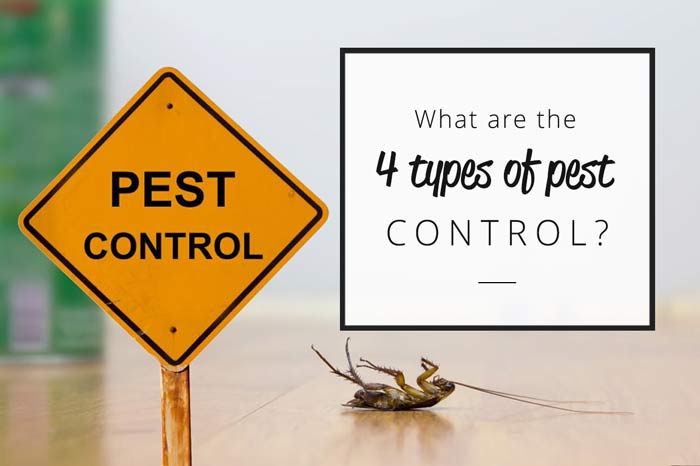The Main Principles Of Pest Control
The Main Principles Of Pest Control
Blog Article
Excitement About Pest Control
Table of ContentsThe Definitive Guide to Pest ControlOur Pest Control DiariesThe Pest Control StatementsThe 20-Second Trick For Pest ControlThe Single Strategy To Use For Pest Control
Limitations of Chemical Management Be able to analyze insect problems, determine if management is required, and make proper suggestions making use of IPM methods. Be familiar with different approaches of parasite administration - their benefits and constraints.This chapter talks about (IPM), a strategy that uses understanding about bugs and their, methods, nonchemical approaches, and pesticides to manage insect troubles. Extra details about IPM for details plants is consisted of in chapters that focus on those plants. Nonchemical bug control measures are emphasized in chapter 17, "Organic Horticulture." Taking care of birds and creatures is covered in chapter 20, "Wildlife." Handling in the backyard and garden is covered in phase 6, "Weeds." Bugs in a garden or landscape might consist of bugs and mites, weeds,, mammals, and birds.
Pests and weeds, however, play a duty in the. After growing a garden or establishing a grass, the natural process of plant sequence starts to reestablish and nonnative plants.
What we call "parasites" are part of a natural system at the workplace. An ecological community has no bugs. Only human beings consider certain types insects when they occur where they are not desired. We will certainly be more successful in taking care of undesirable types when we understand that these organisms follow predictable patterns that we can make use of to our advantage.
The Best Strategy To Use For Pest Control
Insects susceptible to a pesticide were rapidly eliminated, leaving immune ones to reproduce and multiply. It became clear that chemicals alone would not fix all parasite troubles.
An IPM strategy permits some level of parasites in the environment. Pests are much less likely to survive a program that utilizes many various techniques of decreasing their populaces. Integrated insect administration was very first recommended by entomologists since bugs were the initial group of insects to confirm challenging to manage with chemicals alone.
bug and host precisely. and consider economic or aesthetic injury. A limit is the factor at which action must be taken. a therapy method utilizing mechanical, cultural, organic, or chemical controls, or a combination of these methods. success of therapies. IPM has actually expanded beyond insects to monitoring of all pest populations: weeds, disease microorganisms, and animals.
Pest Control - Questions
Monitoring rather than obliteration of bugs is the goal. An IPM plan begins with a mindful examination of each bug problem. Only after that can one choose regarding the appropriate methods essential to subdue parasite tasks. The life cycle of the bug, feasible damages, all-natural opponents, and effects of weather, to name a few aspects, are taken into consideration before a control plan is applied - Pest Control.
Clover expanding in a grass may be deemed an unwanted weed, however as a vegetable it is synthesizing nitrogen for the soil and the blossoms are providing nectar to honey and various other. Resistance for some weeds might be part of an IPM strategy. might be eating the leaves of a plant, yet when they are recognized as the larvae of Eastern tiger swallowtail butterflies, their damage might be endured so we can delight in the gorgeous butterfly.

The second most crucial device in insect administration is very early treatment. Responding to troubles promptly, prior to they have time to increase, calls for a much less significant intervention.
The Greatest Guide To Pest Control
Many risk-free, practical, nonchemical methods of plant defense and pest administration might lower or remove the demand to spray. Other approaches are most valuable when used with chemicals. To execute management methods special info correctly and to minimize losses, garden enthusiasts need to recognize the sorts of parasites that strike plants and understand pest biology.

Performing a dirt examination and using only the suggested amount of plant food and lime optimizes the benefit to the plant while minimizing problems connected to excessive usage of fertilizer - Pest Control. Covering the soil with a number of inches of mulch secures the plant in a number of methods: reducing dirt water loss to evaporation, decreasing weed competition, offering nutrients, and developing an ideal environment for earthworms and bacteria that keep the soil loosened for origins and break down organic product to release nutrients
If mulch touches the trunk, it can produce a way for voles, bacteria, and fungis to strike the plant. Do not utilize manure or compost that has not extensively broken down as a top clothing since click for source it can encourage unfavorable bugs. Research study suggests that tilling the dirt is destructive to soil structure.
3 Simple Techniques For Pest Control
If tilling is regarded needed, take into consideration doing it in the autumn when the life cycles of many more helpful hints pests brings them near the surface. At the surface, pests end up being revealed to the weather as well as birds and other all-natural enemies. Loss tilling can additionally destroy insects in plant residues. Use disease-free and insect-free qualified seeds and plants if available.
Report this page